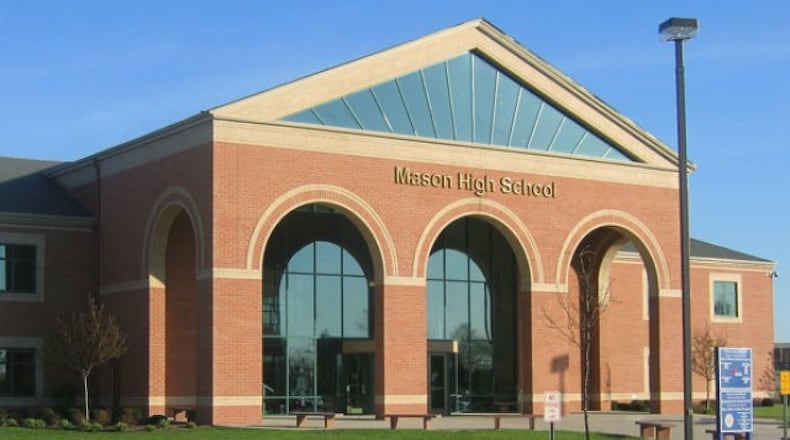The group, however, does not actually want voters to approve decreasing the levies. Instead, they want to keep funding where it is by having their own issues defeated. The fact that a mills change is on the ballot at all prevents another request to decrease to remove those levies for at least five years, which is their goal.
Together these local school tax issues generate funding for Mason schools going back more than 50 years.
Rejection of the nine issues would maintain the same level of local tax revenue toward Mason Schools' annual $120 million operation budget.
“The petitions circulated by Mason for Kids were completed as a defensive move to protect our students, our schools and our community,” said Casey Moran, member of pro-schools group.
“The (school district) opposition shared in a November 2019 Mason school board meeting that they would be petitioning to lower existing voter-approved levies. Because of our care and concern for our school, we circulated petitions to reduce the levies by the absolute minimum resulting in 9 ballot issues for the Nov. 3 election,” said Moran.
“We are asking our supporters of the students, the schools, and our community to vote no and keep Mason (Schools') quality,” she said.
In April, voters in Warren County’s largest school district approved a new $20 million operating tax hike by a 70 percent to 30 percent margin. It was the first new operating levy to win at the ballot in 15 years.
Tracey Carson, spokeswoman for Mason Schools, said “these issues were not placed on the ballot by the Mason Board of Education.”
“Voting ‘yes’ for the issue reduces the district’s local revenue. Voting ‘no’ against the issue maintains the district’s current local revenue,” said Carson.
“The overwhelming approval of Mason’s (April) levy in the middle of the pandemic seemed to confirm that Mason Schools' voters recognize how critical their schools are for keeping a high-quality community. We hope voters will be able to understand this complicated ballot language.
About the Author

